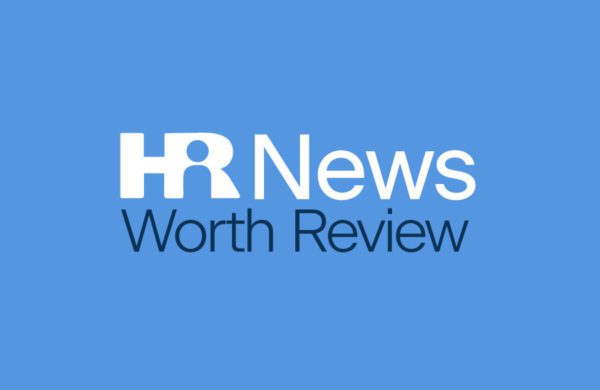EEOC Issues New FAQs on COVID-19 Vaccine Programs & Incentives
On May 28, 2021, the Equal Employment Opportunity Commission (EEOC) added new answers to frequently asked questions (FAQs) to its existing guidance on how employers should comply with the Americans with Disabilities Act (ADA) while also observing all applicable emergency workplace safety guidelines during the coronavirus (COVID-19) pandemic. The agency also updated five of the FAQs from the existing guidance.
The new and updated FAQs clarify the types of programs employers may have to help ensure that their employees receive COVID-19 vaccinations. They also address the extent to which employers may require or provide incentives for employees or employees’ family members to receive vaccines. The new FAQs also provide expanded guidance on the types of information employers may request or require as part of their workplace vaccination policies and programs.
The EEOC’s new FAQs clarify, among other things, that employers may:
- Require employees who will be physically entering the workplace to be vaccinated, as long as certain requirements are met (reasonable accommodations for individuals who refuse the vaccine due to disability, pregnancy or religion);
- Offer to provide vaccinations to employees on a voluntary basis;
- Offer incentives for employees to receive COVID-19 vaccinations, as long as the incentives are not coercive; and
- Offer to provide vaccinations to employees’ family members on a voluntary basis (but may not require or provide incentives for family members’ vaccinations).
Employer Takeaway
All employers should follow the most current guidelines and suggestions for maintaining workplace safety, as issued by the Centers for Disease Control and Prevention (CDC) and any applicable state or local health agencies. Employers with 15 or more employees should also become familiar with and follow the guidance provided in all of the EEOC’s FAQs about ADA compliance. These and all smaller employers should ensure that they comply with state and local anti-discrimination laws as well.
HHS Announces New Interpretation of Section 1557 Sex Discrimination
On May 10, 2021, the Department of Health and Human Services (HHS) issued a notice announcing that, effective immediately, it will now interpret and enforce the prohibitions on discrimination based on sex under Section 1557 of the Affordable Care Act (ACA) to include:
- Discrimination on the basis of sexual orientation; and
- Discrimination on the basis of gender identity.
Under Section 1557, discrimination on the basis of sex is prohibited in any health program or activity that receives federal funds or is administered by a federal agency. A 2016 HHS regulation defined the term “sex” to include sex stereotypes and gender identity, along with pregnancy termination and other pregnancy-related conditions.
In 2020, HHS issued new regulations that changed the 2016 definition of “sex” to allow for distinctions based on “the biological binary of male and female.” The 2020 rule was set to go into effect on Aug. 18, 2020. However, a federal district court blocked HHS from enforcing the 2020 version of the rule. The 2016 regulation remained in effect pending further court action.
Employer Takeaway
As a result of HHS’s new interpretation, entities covered by Section 1557 are prohibited from discriminating against consumers on the basis of sexual orientation or gender identity. This interpretation will guide the Office of Civil Rights (OCR) in processing complaints and conducting investigations, but does not itself determine the outcome in any particular case or set of facts. Employers should be sure to consider the impact of both Section 1557 and the Civil Rights Act of 1964 (as sexual orientation and gender identity are now protected classes under Title VII) as they review their employment policies and practices as well as benefit plan designs.
HSA/HDHP Limits Increase for 2022
On May 10, 2021, the IRS released Revenue Procedure 2021-25 to provide the inflation-adjusted limits for health savings accounts (HSAs) and high deductible health plans (HDHPs) for 2022. The IRS is required to publish these limits by June 1 of each year.
The following chart shows the HSA and HDHP limits for 2022 as compared to 2021. It also includes the catch-up contribution limit that applies to HSA-eligible individuals who are age 55 or older, which is not adjusted for inflation and stays the same from year to year.
|
Type of Limit |
2021 |
2022 |
Change |
|
|
HSA Contribution Limit |
Self-only |
$3,600 |
$3,650 |
Up $50 |
|
Family |
$7,200 |
$7,300 |
Up $100 |
|
|
HSA Catch-up Contributions (not subject to adjustment for inflation) |
Age 55 or older |
$1,000 |
$1,000 |
No change |
|
HDHP Minimum Deductible |
Self-only |
$1,400 |
$1,400 |
No change |
|
Family |
$2,800 |
$2,800 |
No change |
|
|
HDHP Maximum Out-of-pocket Expense Limit (deductibles, copayments and other amounts, but not premiums) |
Self-only |
$7,000 |
$7,050 |
Up $50 |
|
Family |
$14,000 |
$14,100 |
Up $100 |
|
Employer Takeaway
Employers that sponsor HDHPs should review their plan’s cost-sharing limits (minimum deductibles and maximum out-of-pocket expense limit) when preparing for the plan year beginning in 2022. Also, employers that allow employees to make pre-tax HSA contributions should update their plan communications for the increased contribution limits.


